Sharuko on Saturday
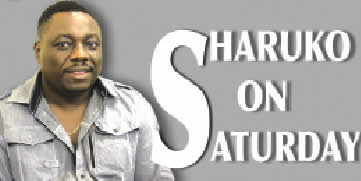
FOR 13 years, Irish journalist David Walsh vigorously stalked Lance Armstrong, refusing to be intimidated by the wall of sympathy that protected the American cyclist, and pursuing a lonely, if not frustrating, journey. Driven by his belief that Armstrong was a shameless cheat, who had doped his way to the top of the world, Walsh was relentless in his pursuit of uncovering the truth about the cyclist.
Of course, it wasn’t easy — Armstrong was the face of professional cycling, an All-American superhero, who had tamed cancer and then taken on the imposing challenge of the Tour de France to win, not just ONE, but SEVEN titles.
Sponsors like Nike, and their millions of dollars, believed in Armstrong and made him a very rich man and millions, if not billions of sports fans, loved him and his refreshing story of man’s refusal to be defeated by such a horrible disease to then rise and conquer the world.
One fan even emailed him saying rather than celebrate the fact that Armstrong had beaten cancer to become the best cyclist in the world, Walsh had transformed himself into the worst cancer of them all.
“Mr Walsh, you have the worst kind of cancer of all,” the fan wrote in his email. “You have cancer of the spirit.”
Even his media colleagues isolated him because, according to Walsh, some felt he was destroying their sport with his barrage of negative stories about this superhero while some were wooed by Armstrong “because he’s powerful, because he’s rich, because he’s cool to know.”
“In those days I was a bit of a crusader, I couldn’t meet anybody without trying to convince them that Armstrong was a fraud,” Walsh recalled.
“Because the Armstrong story was deemed to be so good, so remarkable, an inspiration to countless millions, who wants to rain on that parade? Who wants to be the one to say, ‘hold on, it may not be what it seems?’
“Journalists then begin acting like fans with typewriters. It was far better to write about the angel on wheels.
“There was a time when it wasn’t cool to be a fan with a typewriter. When you went to a stadium you went as a journalist, and you didn’t express any partisanship for one team or another.”
Walsh, who is the chief sports writer of British newspaper, The Sunday Times, was then left to pursue a lonely journey, fighting against a very strong establishment that doubted what he wrote but was quick to ride on anything the cyclist would say in dismissing his stories.
Whistle-blowers started coming to his side, with evidence, and one of them was Emma O’Reilly, and she provided so much material that Walsh was able, along with French sports journalist, Pierre Ballester, to publish a book, L.A. Confidential, on Armstrong.
Still, nothing happened, and three other books, on the cyclist, followed, including Seven Deadly Sins, a mockery of the seven Tour de France titles that Armstrong had captured, but the American superhero, and an establishment that backed him, continued denying the contents.
Then, Armstrong and his powerful team sued Walsh and The Sunday Times in 2004.
“We reached a point where we can’t really tolerate it anymore, and we’re sick and tired of the allegations,’’ Armstrong told journalists.
“We’ll do everything we can to fight them. They’re untrue. Enough is enough. I’m personally very frustrated.
“It’s unfortunate. It’s a few journalists who took this on as a personal mission. Again, enough is enough.
“WALSH IS THE WORST JOURNALIST I KNOW, ETHICS, STANDARDS, VALUES, ACCURACY, THESE ARE OF NO INTEREST TO PEOPLE LIKE WALSH.”
The Sunday Times, unable to provide substantive evidence that Armstrong was a fraudster and, crucially, weighed down by Britain’s tough libel laws, decided to settle the case for more than US$500 000, having spent more than US$1 million in legal fees.
It was a huge victory for Armstrong and his team but, still, Walsh would not let go, driven by his conscience that he was right, this guy was a fraud, and even though he could not stand in court to provide evidence that would convince a jury, it didn’t mean he was wrong.
But Armstrong refused to give up, driven by his conscience that he was in pursuit of something good for society, and while his assignment had left him with a lot of scars, and very few friends, it was worth the pain that he had endured.
“Everybody would say, ‘what evidence have you got?’ I would say, well I don’t have enough evidence to ever prove to anyone that he’s guilty . . . I just feel that I have huge responsibility, a huge need, to go and ask a lot of questions,” recalled Walsh.
“A good story is always worth pursuing, if you’re right, good people will come out to help you, it’s okay to swim against the tide and Britain’s libel laws are seriously deficient — they have zero interest in the truth.”
THE YEAR WALSH FINALLY GOT HIS VINDICATION
In June 2012, the United States Anti-Doping Agency said that Armstrong was guilty of doping and drug trafficking, based on blood samples taken in 2009 and 2010, and witness testimonies, including some of his former teammates, in “the most sophisticated, professionalised and successful doping programme that sport has ever seen.”
Still, Armstrong continued to vigorously deny the allegations.
Then, one day in January 2013, a few months after being accused by the US authorities, and 13 years after Walsh first accused him of being a shameless drug cheat, Armstrong told the world, in an interview with Oprah Winfrey, that he was, indeed, guilty of doping.
It provoked a tsunami and on the day of his confession, virtually all his sponsors, except Nike, dropped him, and he lost a staggering US$75 million, in just one day, in that sponsorship flight.
Nike, inevitably, followed the sponsors’ flight and Armstrong was stripped of his seven Tour de France titles while he continues to face a lot of other legal suits from sponsors, including Walsh’s Sunday Times, who demanded that he pays back the money they paid him, when he sued them, in that settlement in 2006.
Armstrong, crucially, also apologised to Walsh in that interview with Oprah, the very same man he had called “the worst journalist I know, ethics, standards, values, accuracy, these are of no interest to people like Walsh,” just 10 years ago.
In December 2012, Walsh was named Journalist of the Year and Sports Journalist of the Year at the British Journalism Awards, with the judges praising the work that he invested in pursuing Armstrong.
“David Walsh became a pariah for years in his chosen sport in order to get to the truth of this story,” the judges of the awards noted.
“He pursued it and pursued it. The US Anti-Doping Agency would never have taken Armstrong on if it hadn’t been for David Walsh.
“It was a fine example of great investigative journalism.”
“David Walsh’s investigation into doping by Lance Armstrong was great news story, not just a great story, it was huge.
“His 13-year investigation was dogged, determined and brave. He could have lost everything but persisted against the odds.”
Walsh said taking on a global icon, who had the sympathy of the world because of the condition he had conquered, and how he had transformed himself into arguably the greatest cyclist of all-time, wasn’t easy.
“And I was trying to say this guy, whom you, the world, regard as a cancer icon and the greatest cyclist in the history of the Tour de France, in my view, he’s a fraud,” said Walsh.
“Well, of course, Armstrong is going to be pretty upset at that, and he did react with tremendous aggression towards me. And it always kind of intrigued me, I’d say, that he could call me in print the worst journalist who ever existed, a journalist who, he said, who would lie, who would steal, who would do anything to bring me that down — and everybody seemed to think that was fine.
“But now, of course, in fairness, lots of people have tweeted me to say, look, I’m sorry I doubted you.
“I thought you were wrong, I now realise you were right. And that has been, I suppose, satisfying in a way. But honestly, I didn’t ever for a moment, think I was getting this story wrong.”
For me, the best part of Walsh’s interviews, after Armstrong’s confession and the stripping of all the seven Tour de France medals that he had won, came with the Huffington Post, an online media giant in the United States, the first commercially run American digital media enterprise to win the prestigious Pulitzer Prize for journalism excellence.
“IF I MET YOU SIX YEARS AGO I’D BE LIKE, YOU’RE FROM THE F***ING HUFFINGTON POST?” Walsh told a media organisation that was fiercely supportive of Armstrong and had discredited his work.
“I READ WHAT THE GUYS FROM THE HUFFINGTON POST SAY ABOUT ARMSTRONG, THEY LOVE ARMSTRONG. THERE’D ALWAYS BE SOMEONE WRITING STUFF ABOUT HOW IT WAS COOL TO DEFEND LANCE ARMSTRONG AND THAT STUFF WOUND ME UP.”
WHY IT’S NORMAL TO BE IN THE LINE OF FIRE
In this job, if your instincts propel you to always ask questions, to always see beyond what others feel is normal, to dig deeper rather than concentrate on the surface, it’s very likely that you will attract a barrage of missiles, either in the form of lawsuits or even physical threats, because people generally hate to be criticised.
They want a media that operates like their public relations wing, those guys who are there to try and provide lipstick to the frog hoping that, against all odds, it will triumph in the Miss World beauty contest.
In the ‘90s, when Dynamos had made it fashionable that they would just compete in the CAF Champions, to make up the numbers, without even questioning where they were coming short, I took it upon myself to question why this kind of mediocrity was so acceptable at a team I felt had the pedigree to stand toe-to-toe with the best on the continent.
I was fairly new on this newspaper and I struggled to understand why we were not taking on this monster, which I felt had the capacity to even conquer the continent, and why we were comfortable with seeing them, year in and year out, playing second fiddle to other teams in Africa.
There appeared to be some unwritten rule that it was taboo to criticise the Glamour Boys, even if that criticism would help them take a look at themselves in the mirror, and flex the muscles I believed could make them take on the most powerful teams on the continent.
And, when Blackpool, in their first season in the CAF inter-club competitions, and just a year after their arrival in the domestic Premiership, went all the way to the semi-finals of the old Cup of Club Champions, only to be beaten by the away goals rule by eventual winners JS Kabylie of Algeria in 1995, I felt it was time to question why DeMbare were failing to make a similar impression.
That the same Dynamos had fallen in the quarter-finals of the Champions Cup that year, somehow blowing a priceless 1-0 away victory in Uganda against Express, to lose 1-2 at the National Sports Stadium, and bow out on away goals rule, not only fuelled my desire to ask some tough questions but gave me the ammunition to do so.
In a hard-hitting article, I took to task a coaching staff that had somehow found it acceptable to take qualification for the quarter-finals as an achievement and which, on that fateful day, had somehow decided to leave Moses Chunga, the hero of the victory in Kampala, on the bench, only for him to be thrown into the game in the second half and score a gem of a goal, his second against the Ugandans in two games.
I questioned this giant’s desire to make that leap of faith, and turn themselves into a big team on the continent, and wondered, whether the leadership understood what it meant to be crowned champions of Africa, or they were just content with hunting on a domestic landscape they had dominated for years.
And, when I described Dynamos as “a perennial continental misfit,” it provoked a backlash from a group that was called the standing committees, who used to meet every evening in First Street to discuss the club’s affairs, and they felt this was a blow below the belt.
The next day, those fellows met in First Street and decided they should demonstrate against me and, suddenly, I was being told that there was a group of Dynamos officials and fans, holding placards outside Herald House, condemning the way I had reported about their club.
There was even a touch of humour, to what was an explosive situation, given one of the placards had the words, “Sharuko is a perennial sports writing misfit”, buried from the very phrase I had used to describe their club.
Refreshingly, three years later, DeMbare were in the final of the Champions League and, as one of the three journalists on tour with them for their decisive second leg tie against ASEC Mimosas in Abidjan (Lovemore Banda and Robson Mhandu were the others), I felt a sense of pride that, finally, that criticism had awakened the giant.
LAWSUITS AND THREATS FROM ZIFA ARE PART OF THE JOB
So, when I read that ZIFA chief executive Jonathan Mashingaidze was suing us for US$200 000, even though strangely we haven’t been served with the papers, I didn’t lose sleep because such lawsuits and threats are part and parcel of this special profession.
He isn’t the first ZIFA official to sue me, Elliot Kasu did it in 2010 and lost at the High Court last year, and I’m pretty sure that Jonathan is not the last official from that beleaguered organisation to try and silence me.
But, if the intention was to silence me, then he is mistaken and it’s a pity that Jimmy Finch, the good daddy of Zimbabwe football, is no longer with us today to back me up on that because he was there, in Accra in 1997, when I refused to apologise to the Ghanaian authorities, live on radio, who felt offended by a story I had filed regarding their poor treatment of the Warriors.
The Ghanaians threatened they would have me deported, on the next plane, unless I apologised for the story that had appeared in The Herald, on their radio station, but I calmly told them that I stood by every word that I had written and if it was my fate that I would be sent back home, then so be it.
Somehow, I wasn’t deported, and stayed long enough to cover the match, a ’98 Nations Cup qualifier.
The same Jonathan who finds it appropriate to describe his critics as vampires and criminals suddenly finds offence when his letter, which he felt would never be smuggled into our offices, finds itself on our desk and its sensitive contents are published.
And, if he thinks that a US$200 000 defamation suit is enough to frighten us into silence so that he runs down ZIFA, without anyone questioning his medieval management style, Stone Age administrative ways, made-in-hell supervisory style which has run this organisation into its graveyard, then he is day dreaming.
If he thinks a defamation suit will silence us from asking questions about what happened to that US$700 000, which remains a huge talking point from their audited accounts, then he can get assurance it’s not going to happen, not today, not tomorrow.
If he thinks a defamation suit will frighten us not to ask questions about how it’s possible that people at ZIFA House, who claim they haven’t been paid for nine months, can still afford to import cars, as has been the case in the past few months, then he can forget.
If he thinks a defamation suit will silence us not to ask questions about how one of them, if they have no money, still could afford to book an expensive hotel for the wedding ceremony of his child, to flex his financial muscle, then he is horribly ill-advised.
Lawsuits are part and parcel of this job Jonathan, ask David Walsh mate, he was hammered by Lance Armstrong’s lawsuit but just check who had the last laugh at the end of the day?
As a former teacher, yourself, I’m sure you are familiar with this phrase that “he who laughs last, laughs longest.”
To God Be The Glory!
Come on United!!!!!!!!!!!!!!!!!!!!!!!!!!!!!
Di Mariaaaaaaaaaaaaaaaaaaaaaa!
Text Feedback — 0772545199
WhatsApp Messenger – 0772545199
Email — [email protected]
Skype — sharuko58
Like my Facebook page, ROBSON SHARUKO JOURNALIST, follow me on Twitter @Chakariboy, interact with me on Viber and on ZBC’s weekly television football magazine programme, GamePlan on Monday nights, or read my material in The Southern Times.


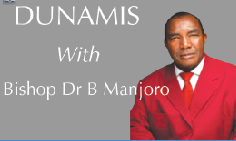
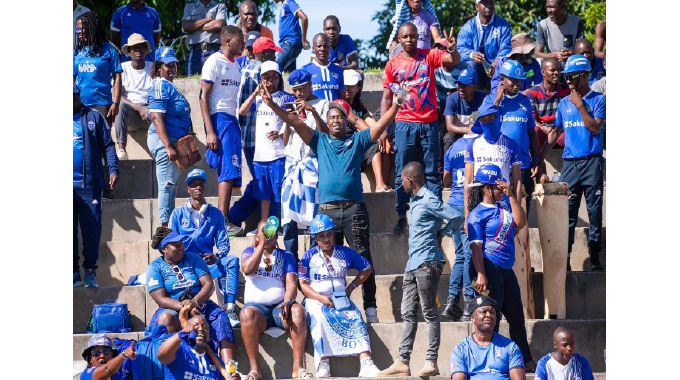
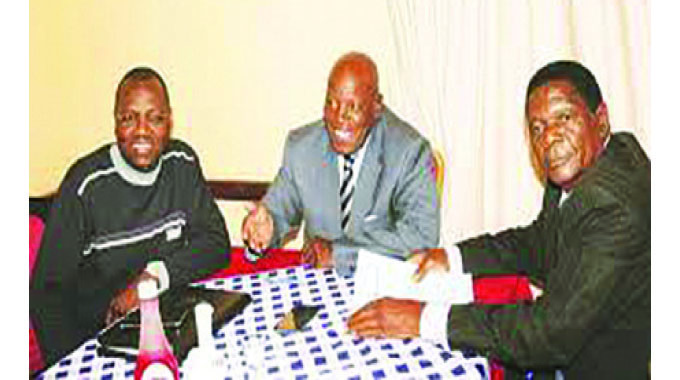
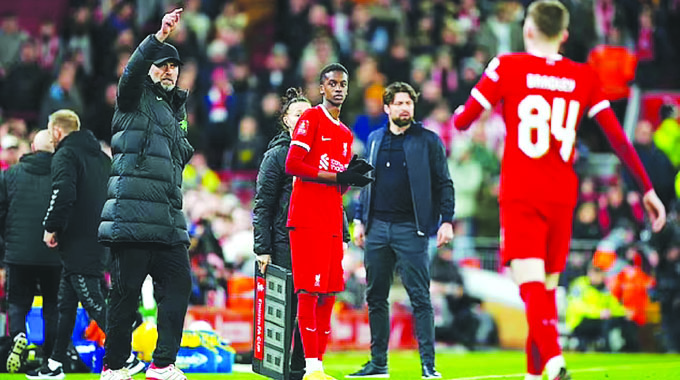

Comments